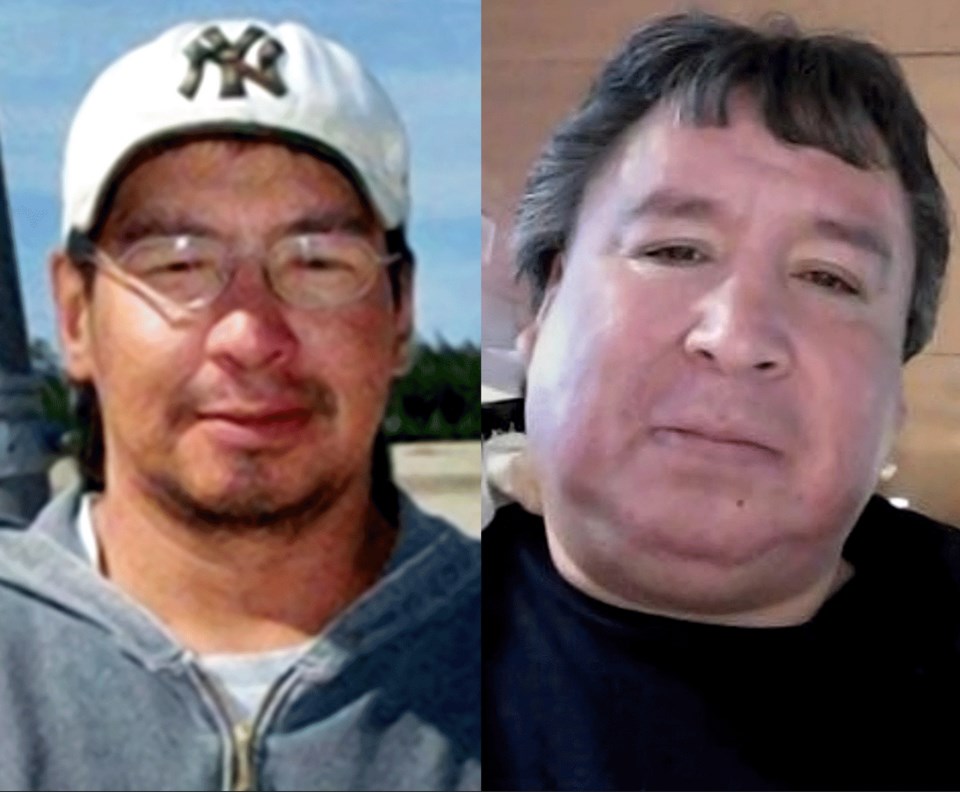THUNDER BAY - Don Mamakwa, who died in a cell at the Thunder Bay Police Service headquarters, likely would have survived if given proper medical treatment, according to a medical expert’s testimony during the coroner’s inquest.
Dr. Alim Pardhan and Dr. Tomislav Svoboda, experts in family and community medicine, were called to testify on day six of the coroner’s inquest examining the circumstances surrounding the deaths of Mamakwa and Roland McKay, who both died while in the custody of the Thunder Bay Police Service.
“For a diabetic ketoacidosis and alcohol ketoacidosis, which are the two most common causes of acidosis, the stated survival rate is about 97 per cent,” said Dr. Alim Pardhan, an emergency medical physician.
“It’s complicated somewhat by the fact that there was underlying sepsis as well. But all three of those conditions are quite treatable, so the survivability would have been quite good.”
Mamakwa, 44, of Kasabonkia First Nation, died in a cell at the Thunder Bay Police Service headquarters on Aug. 3, 2014. McKay, 50, of Kitchenuhmaykoosib Inninuwug First Nation, died on July 19, 2017.
Earlier testimony revealed that Mamakwa suffered from several medical conditions, including diabetes and alcohol use disorder. On the afternoon of Aug. 2, 2014, when he encountered first responders, including paramedics and police, he requested to go to the hospital because he was short of breath.
Paramedics did not conduct a medical assessment of Mamakwa and he was transported to the police station, where he died several hours later.
According to Pardhan, both diabetic and alcohol ketoacidosis is very fast moving and early medical intervention is key in order to reverse the acidity of the blood. Early intervention in treating sepsis also increases survivability.
“Aggressive early treatment is warranted in all of these cases,” Pardhan said, adding that an assessment by paramedics is very important in identifying the condition.
“That is how we determine if it is simply intoxication or something more than that,” he said. “That assessment piece is the important part. Someone needs to do the assessment to determine if it is strictly intoxication, or something more is going on.”
Pardhan also noted in the video surveillance footage from inside the booking room at the police station headquarters that Mamakwa was breathing quickly, approximately 35 to 40 breaths per minute compared to the average of 16 breaths per minute.
Someone exhibiting this type of breathing should have been brought in for medical treatment sooner rather than later, Pardhan said, in order to undergo x-rays, a cardiogram, and blood work.
“Mr. Mamakwa’s respiratory rate was quite high. That would be a tell-tale sign that something was wrong,” Pardhan added. “If they are not improving, it is an indicator that something is not right.”
Svoboda testified to reviewing Mamakwa’s medical history, which included several physical and mental health issues and hospitalizations. Mamakwa was also experiencing chronic homelessness and Svoboda said individuals in that position can often experience difficulties accessing care.
“It also makes the condition they are actually suffering from invisible,” he said. “Someone who has an underlying mental health problem, or addiction, or physical problem, that remains unaddressed and untreated and that person ends up succumbing and worsening from that condition.”
Both Svoboda and Pardhan agreed that more services need to be available to people experiencing homelessness and addiction issues and more training is needed for first responders who interact with them in times of crisis.
Alcohol management programs are one way to bridge the gap in services, Svoboda said, because it offers a harm reduction approach to addiction and allows vulnerable people to still access services despite alcohol use disorders.
“We prefer to look at it as providing services despite the use rather than refusing services if someone is using,” he said. “It’s really about access to services rather than access to alcohol.”
The Thunder Bay Shelter House does have an alcohol management program and Mamakwa utilized the service before being discharged.
“Ironically, sometimes people are discharged because they need more care than we can provide,” Svoboda said.
“I can’t confirm that was the case for Mr. Mamakwa, but looking at all the circumstances of his situation, I can confirm he wasn’t able to have his medication dispensed on a regular basis based on the reports, he was discharged from the program, and my suspicion is he had interactions with the law and suffering from some of these other problems.”
A community policing model is another way to help bridge the gap in services and provide front-line officers with the tools of establishing better relationships with people who come into conflict with the law.
By building these kinds of relationships, it can make interactions with police more positive and prevents someone from becoming isolated and unable to access care.
Svoboda was also asked about the benefits of front-line police officers recognizing and treating addiction as a medical issue rather than a legal one.
“Someone who is repeatedly intereacting with the police because of alcohol use disorder should trigger that understanding that this person has a chronic health problem and not someone who randomly chose to do this on a weekend,” he said.
Const. Jeff Tackney of the Thunder Bay Police Service, who was the jailer at the police headquarters when Mamakwa was first brought in, began testimony late Tuesday afternoon and will continue on Wednesday.
